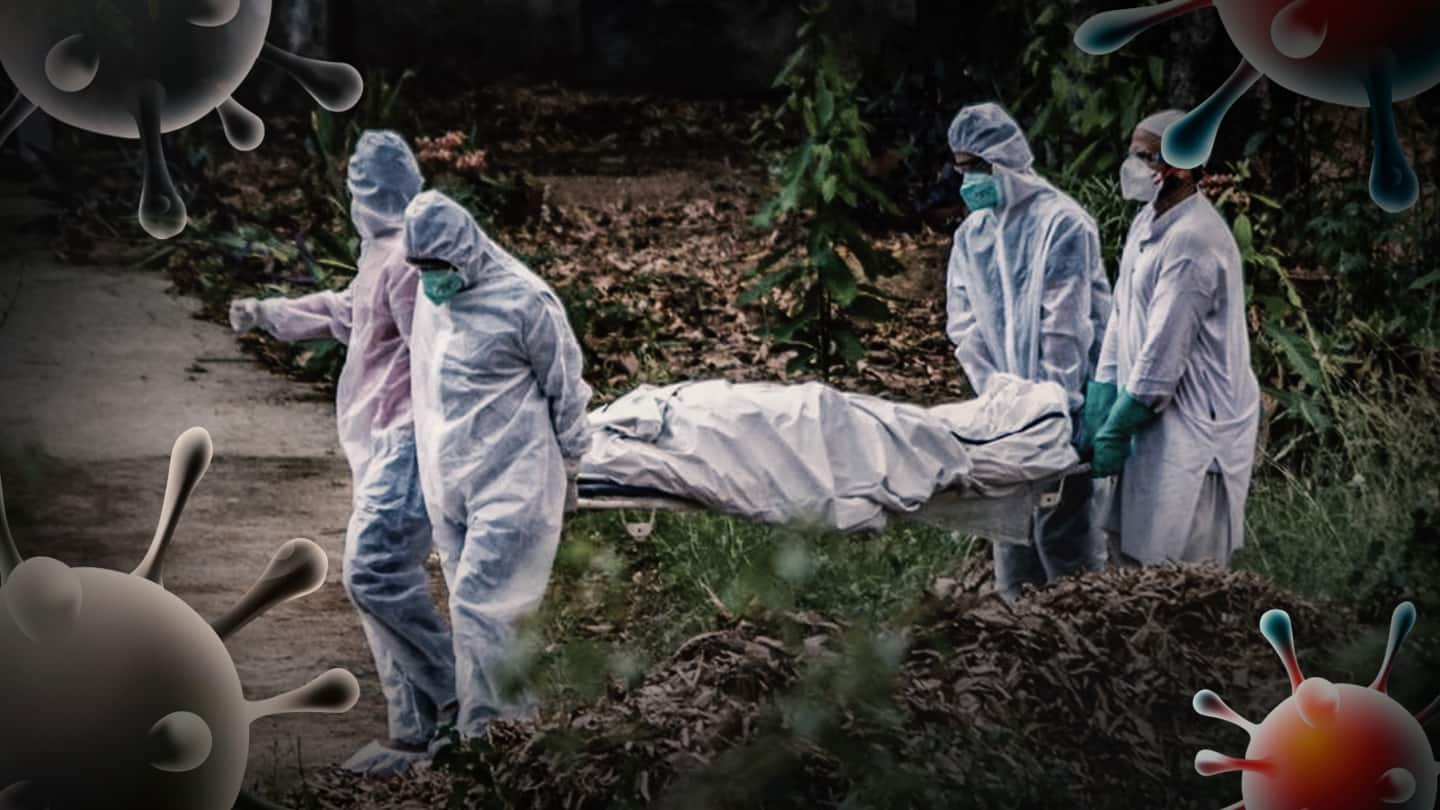
Coronavirus: India reports new record high of 3.6 lakh cases
What's the story
India on Wednesday reported 3.6 lakh new coronavirus infections, yet another record high for any country in the world. The nationwide tally has reached nearly 1.8 crore.
India also witnessed its deadliest day, recording nearly 3,300 fresh fatalities, which pushed the death toll past two lakh.
The test positivity rate has risen slightly from 19.5% the previous day to 21%.
Here are more details.
Statistics
India reports 1,79,97,267 cases, 2,01,187 deaths
According to the Union Health Ministry, till Wednesday morning, India reported a total of 1,79,97,267 COVID-19 cases. The death toll has reached 2,01,187.
Since the beginning of the pandemic, 14,78,27,367 patients have recovered, while 29,78,709 cases involve active infections.
In the past 24 hours alone, India recorded 3,60,960 new infections and 3,293 fresh fatalities.
14,78,27,367 vaccine doses have been administered so far.
Maharashtra
Maharashtra: 66K new cases in India's worst-hit state
Maharashtra, India's worst-hit state, reported 66,358 new cases. The state conducted 2,82,719 tests and the positivity rate remained a high 23.4%.
The cumulative number of infections has now climbed to 44,10,085, which includes 6,72,434 active cases.
The state also reported 895 more fatalities, the highest in a single day since the pandemic began, which pushed the death toll to 66,179.
Other states
1 in 3 samples tested found positive in Delhi
Delhi reported 24,149 new cases, marking a daily positivity rate of 32.7%. The cumulative number of cases has reached 10,72,065, including 98,264 active cases. 381 more deaths also brought the fatality count to 15,009.
Nearly all states and union territories are now seeing a record rise in infections, including Assam, Gujarat, Haryana, Kerala, Tamil Nadu, Telangana, and West Bengal among others.
Reason
Why is India facing a second wave?
Experts have blamed large gatherings and laxity in compliance with preventive measures, such as wearing face masks and physical distancing.
Critics of the government blame an insufficient healthcare system, a lack of direction in administration, poor planning, and lax enforcement of guidelines.
Notably, Prime Minister Narendra Modi and Home Minister Amit Shah themselves were drawing large crowds earlier this month during election campaigns.
Information
Large gatherings, low vaccinations, virus mutations blamed
The government also supported the Kumbh Mela in Haridwar, Uttarakhand, where millions gathered earlier this month, even as infections reached record highs. Further, India's vaccination drive and efforts to study new mutant variants have also been termed inadequate.
Comments
'This hasn't peaked yet'
The World Health Organization (WHO) has blamed India's COVID-19 outbreak on a "perfect storm" of factors such as mass gatherings, low vaccination rates, and more contagious variants.
Gayle Smith, the US State Department's coordinator for global COVID-19 response, has warned, "We all need to understand that we are still at the front end of this. This hasn't peaked yet."
Support
Global effort to back COVID-19 fight in India
Dr. Anthony Fauci—America's leading expert on infectious diseases—has called upon richer countries to help India.
The US has announced it will give India 60 million doses of the Oxford/AstraZeneca vaccine (labeled 'Covishield' in India).
Australia, Germany, Ireland, and Britain are also sending in key supplies including ventilators and oxygen concentrators.
New Zealand is donating NZ$1 million (Rs. 5.35 crore) to assist India's COVID-19 effort.